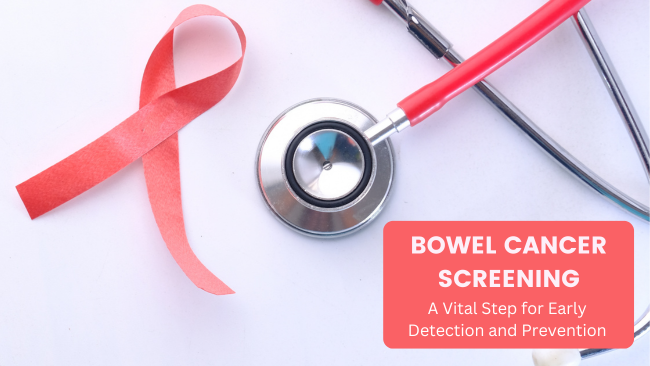Bowel cancer, also known as colorectal cancer, is a serious health concern affecting millions of individuals worldwide. It is the third most common cancer globally and the second leading cause of cancer-related deaths. However, the good news is that when detected early, bowel cancer is highly treatable. Regular screening plays a crucial role in identifying precancerous growths and diagnosing the disease at an early stage. In this article, we will discuss the importance of bowel cancer screening and how family doctors and GP clinics in Adelaide, particularly those with a focus on chronic disease management, can help individuals stay proactive and maintain their health.
Early Detection Saves Lives
Bowel cancer often develops from precancerous polyps in the colon or rectum. Over time, these polyps may become cancerous. Regular screening tests can detect these polyps or detect the cancer in its early stages, when it is most curable. In fact, the five-year survival rate for bowel cancer is around 90% when diagnosed at an early stage.
Bowel Cancer Screening Methods
Fecal Occult Blood Test (FOBT): This non-invasive test detects the presence of blood in the stool, which may indicate the presence of polyps or cancer. FOBT is often recommended as an initial screening test for individuals without symptoms.
Flexible Sigmoidoscopy: This procedure involves examining the rectum and lower part of the colon using a flexible tube with a camera. It helps detect polyps or cancer in the lower bowel.
Colonoscopy: Considered the gold standard for bowel cancer screening, colonoscopy involves a thorough examination of the entire colon and rectum using a flexible tube with a camera. This procedure allows for the detection and removal of polyps and can help diagnose cancer at an early stage.
The Role of Family Doctors and GP Clinics in Adelaide
Family doctors and GP clinics in Adelaide play a pivotal role in promoting bowel cancer screening and overall health maintenance. These healthcare providers, including female GPs, can provide guidance, education, and personalized care to their patients. They can assess individual risk factors, such as age, family history, and lifestyle, and recommend appropriate screening methods based on guidelines and the patient's needs.
In Adelaide, there are several GP clinics that are known for their expertise in chronic disease management and preventive care. These clinics offer a comprehensive approach to healthcare, focusing on early detection, timely intervention, and ongoing support. By visiting a reputable GP practice, such as the best GP practice in Hove or Adelaide, individuals can ensure they receive the highest standard of care and access to the latest screening technologies.
The Benefits of Regular Screening
Early Detection: Regular bowel cancer screening allows for the detection of abnormalities at an early stage when treatment options are more effective and less invasive.
Prevention: Some screening tests, such as colonoscopy, enable the removal of precancerous polyps, potentially preventing the development of bowel cancer altogether.
Peace of Mind: By undergoing regular screening, individuals can gain reassurance and peace of mind about their health status, especially if they have risk factors or a family history of bowel cancer.
Conclusion
Bowel cancer screening is a crucial aspect of preventive healthcare that can save lives. By detecting the disease at an early stage, individuals have a significantly higher chance of successful treatment and improved long-term outcomes. Family doctors and GP clinics in Adelaide, particularly those focusing on chronic disease management, can guide and support patients in their journey towards maintaining optimal health. By seeking the expertise of these healthcare professionals, individuals can access the best GP practice in Adelaide or Hove and receive the necessary screening tests and personalized care to stay proactive in their health management

